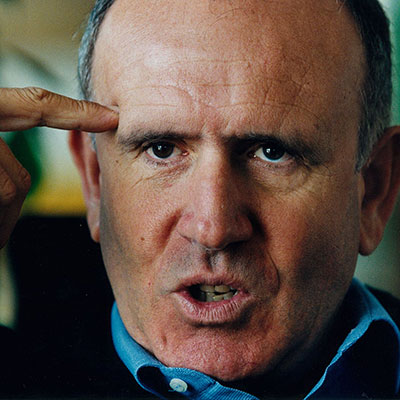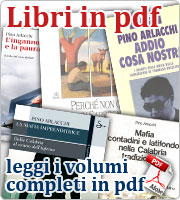Agence Europe - Brussels, 19 lug. 2010
On Wednesday 14 July, the Italian MEP Pino Arlacchi (ALDE, Italy) published a draft report in which he severely criticises the management of the funds of the international community - and therefore European funds - in Afghanistan. After an investigation lasting more than six months, he is putting forward a new strategy to the European authorities to tackle the issue of Afghanistan.
First of all, the MEP, who is known for his strong anti-Mafia stance in Italy and for his fight at United Nations level against organised crime, speaks out in the strongest terms against “the waste of a significant proportion of the European taxpayers' money” in civilian and military missions. He claims that 80% of civil international aid meant for Afghanistan never reaches the Afghans.
“The European Union says that it has full confidence in the way the aid and community money are being spent (…). I believe that before making this kind of statement, they should show greater prudence”, he said.
At a press conference, the MEP criticised the fact that many areas of security have been contracted out to private businesses. “The problem lies in the very structure of the assistance provided: companies of consultants that are getting paid millions every year with no real justification, or projects which never get finished. I believe that money is being wasted because these contracts are overvalued. The donor countries are awarding contracts to companies from their own country”. By way of example, he referred to the security of the European delegation in Kabul, which has been subcontracted at a cost of €27 million over four years to a British company. “This is a colossal sum, without the slightest justification, in that these services could have been provided by any European police force for the tiniest fraction of that sum. €27 million would buy nearly 20 hospitals in Afghanistan”. He went on to claim that a not insignificant proportion of the money might even be ending up in Taliban hands. “In turn, the businesses subcontracting transport are awarding contracts to other people to guarantee safe passage for their trucks, who are paying the warlords, insurgents and a whole host of other criminals and lawbreakers”, he explained. In his report, the MEP argues that the price for one week of war costs as much as 6,000 Afghan schools, which would do much to fight illiteracy in the country.
Pino Arlacchi stresses the importance of training the Afghan police in the peace process - a question which is directly related to the timetable for the withdrawal of the international troops. “Here again, this training has been farmed out to two private companies with a very sinister reputation, which are known for violations of human rights, waste and corruption”, he said. “I proposed bringing together all of these scattered international missions into one European training mission, which is far better able to provide this training. I call on the EU to suggest to the Americans that the practice of contracting out all elements of security and aid ceases”.
The MEP laid down three conditions for the success of the new strategy he is proposing. Firstly, Al Qaeda must be completely banished from Afghanistan. Secondly, the Afghan constitution must be observed, particularly as regards fundamental rights and women's rights. Thirdly and lastly, the poppy crop must be done away with, by promoting other crops. On this last point, he proposes earmarking €100 million out of European contributions to put an end to poppy growing on the basis of a five-year plan, reducing the crop by 25% a year. This, he added, is an “entirely realistic” target.
Additionally, he supports existing initiatives to reinforce the autonomy of action of the Afghan government: “We should not be dictating the conditions of this peace process to the Afghan government; we should allow that government to manage it within the framework I have described”.
He concluded by stressing the limitations of the military strategy employed over the last nine years: “We must now speed up the peace process. We should support the efforts of the Afghan government towards dialogue with the insurgents in order to create a government of national unity”. He supports existing initiatives for mediation with the rebel forces.
The MEP, who is well aware that his words will “set the cat among the pigeons”, says that he has considerable support. “Many of my colleagues at the Parliament fully support me (…). It is clear that this report must now be translated into a strategy of the European institutions”. The deadline for submitting amendments to this document is 7 September. The report will be examined by the EP during its November plenary session.





 Non sono una persona complicata. La mia vita pubblica ruota intorno a due cose: il tentativo di capire ciò che mi circonda, da sociologo, e il tentativo di costruire un mondo più decente, da intellettuale e militante politico.
Non sono una persona complicata. La mia vita pubblica ruota intorno a due cose: il tentativo di capire ciò che mi circonda, da sociologo, e il tentativo di costruire un mondo più decente, da intellettuale e militante politico.




